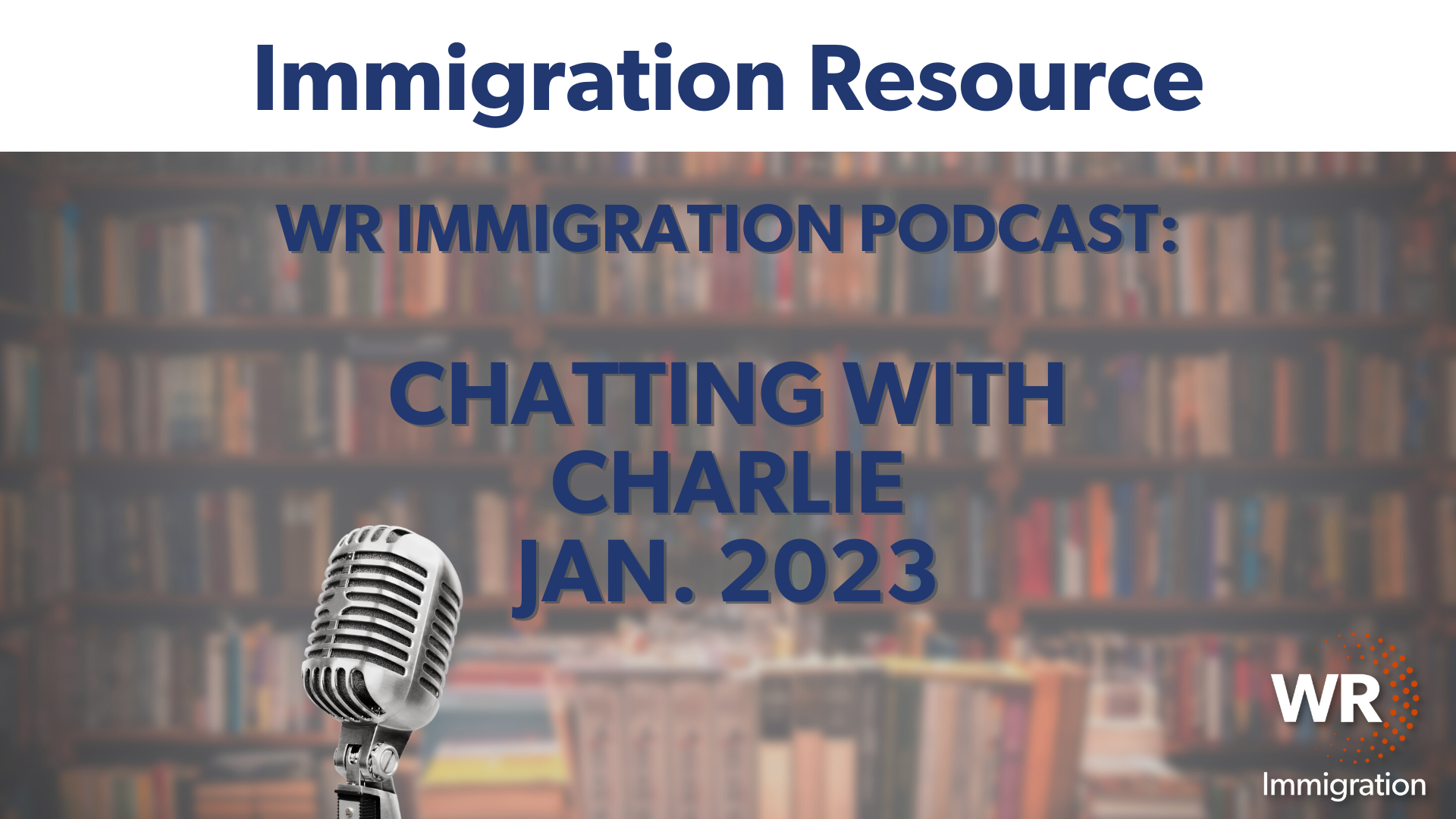In this podcast, WR Immigration Director of Visa Consulting Charlie Oppenheim, Partner Charina Garcia and Senior Associate Laura Bloniarz unpack the February Visa Bulletin, provide updated predictions and analyze trends.
WR Immigration Podcast: Chatting with Charlie January 2023 Webinar

Related Posts:

